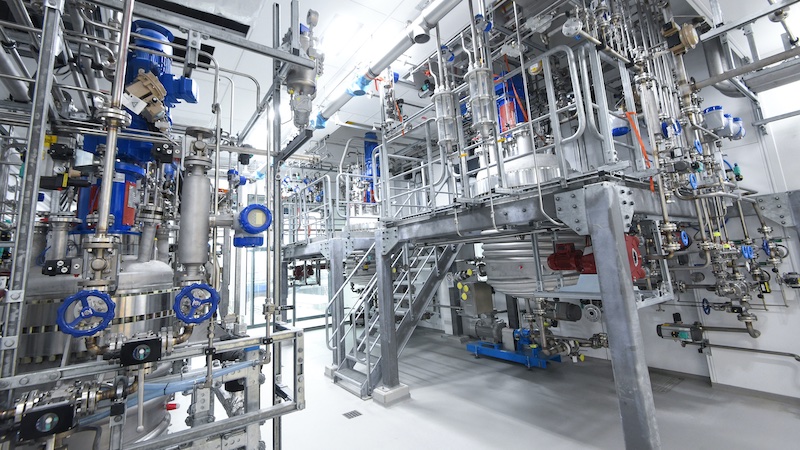#Textile chemistry
BASF inaugurates new Catalyst Development and Solids Processing Center in Ludwigshafen

“With cutting-edge process equipment, our new Catalyst Development and Solids Processing Center enables BASF to conduct more focused and rapid development of innovative catalyst and process technologies, which we and our customers urgently need for the green transformation,” said Dr. Helmut Winterling, President Group Research at BASF. “It is also an important investment in the future of our research and development activities at the Ludwigshafen site.”
Catalysts play a key role in industrial chemistry. More than 80 percent of all chemical products come into contact with a catalyst at least once during their production. Catalysts reduce the energy demand and the amount of undesired by-products. Thereby, they minimize raw material consumption and shrink the carbon footprint of products. Catalysts are used in many areas, including the chemical and petrochemical industries, as well as in innovative processes essential for the green transformation. BASF not only develops catalyst and process technologies for its customers worldwide, it also uses them in its own manufacturing plants.
At the new Center, BASF will develop and optimize innovative process technologies and catalysis processes. “The technical capabilities of the new research facility will strengthen our innovative power and improve our competitiveness in a global market environment,” said Dr. Detlef Ruff, Senior Vice President Process Catalysts at BASF. “This new center offers us the ideal conditions to transition lab-developed catalysts to production scale. It will enable us to provide our customers with high-quality pilot samples of new catalysts. We can thus react more flexibly to the needs of the market and supply innovative technological solutions faster – a crucial factor in successfully launching new products.”
BASF constructed the new Center within three years to replace an older building. The new building has state-of-the-art safety features and is equipped with numerous new technologies for R&D activities. In total, the company invested a high double-digit million-euro figure in the new Catalyst Development and Solids Processing Center.












